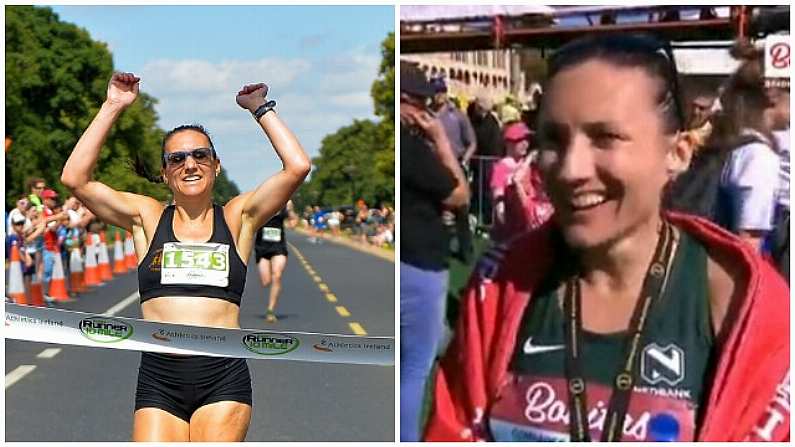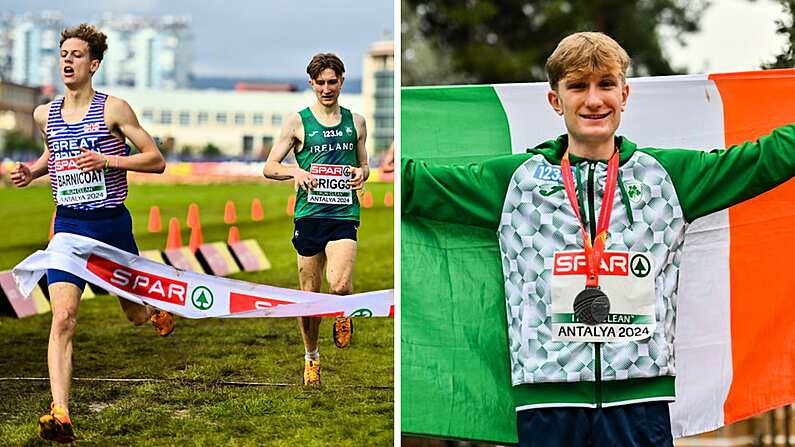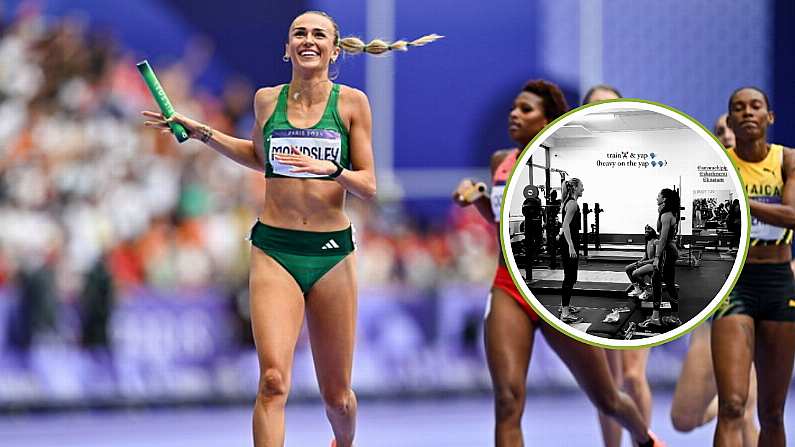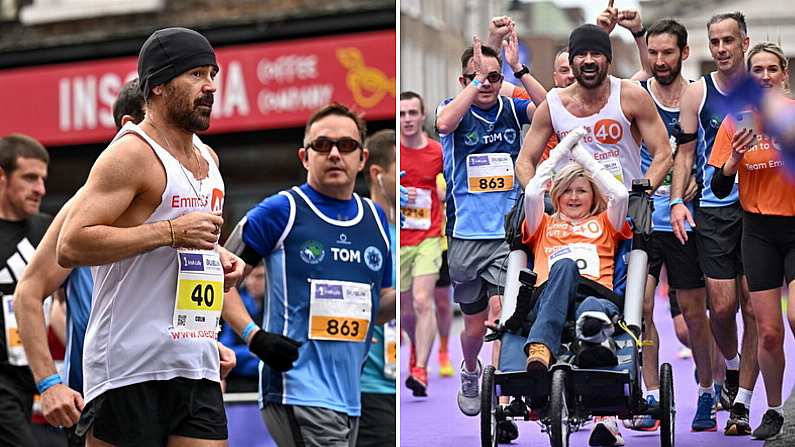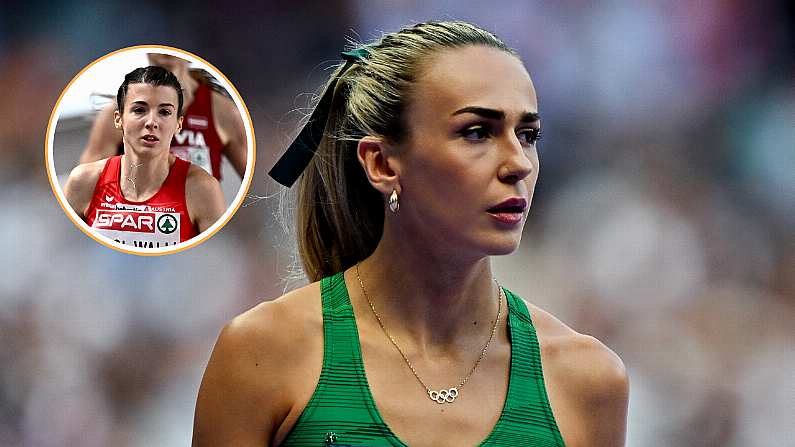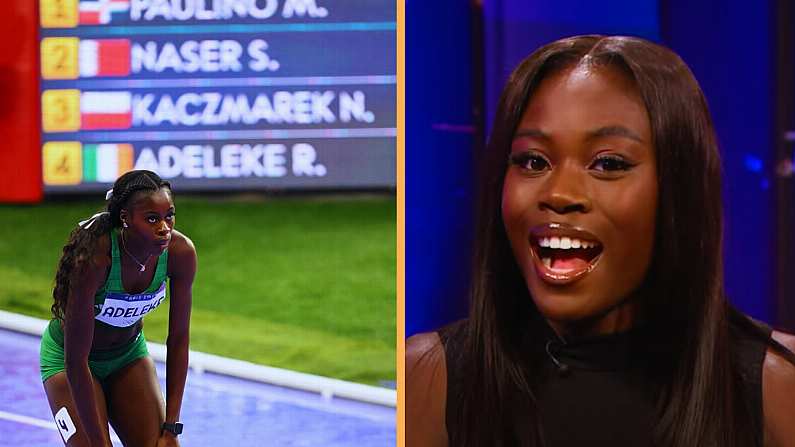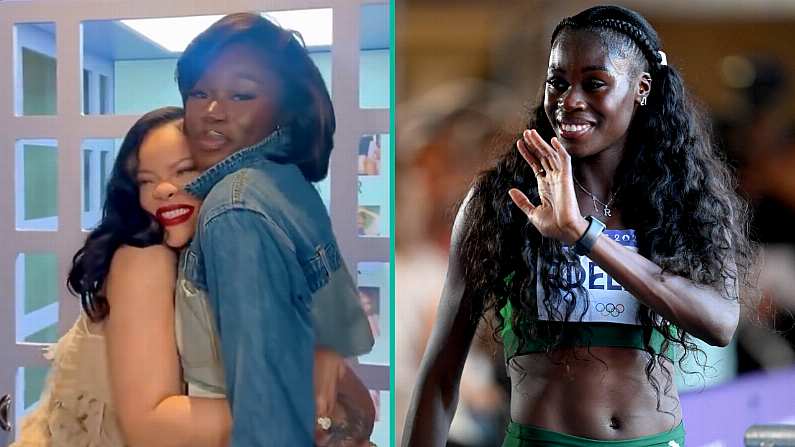For Caitriona Jennings, there was a feeling following her most recent race that she had not experienced in quite a while. It was one of unblemished satisfaction; there were no tarnishing what-ifs.
On June 9th, the Donegal woman finished third in the 94th running of South Africa’s Comrades Ultramarathon. It is the oldest and largest such event in the world and also known as 'The Ultimate Human Race'. 21,625 took part this year, 4,357 of them women.
"I was really thrilled," the 39-year-old told Balls about her podium finish in the 86.83km run (that's two marathons plus an additional few kilometres).
"It surpassed any of my expectations.
"It’s funny because I was saying recently to some of the guys I run with that we’re so highly critical of ourselves that no matter how well you do in a race, you’re always wishing you’d done something differently.
"For the first time in a very long time, I was very pleased with the performance and the result."
Crossing the finish line at the Scottsville Racecourse in Pietermaritzburg, there was that sense of achievement but also pure pain. It was by far the longest race she’d ever run. Thinking back now, it makes sense that her legs buckled.
“I literally couldn’t walk when I stopped running. It was absolute agony to walk. It’s funny because I was standing on the grass and the grass was really wobbly. I was trying to do an interview and all I wanted to do was just lean up against one of the barriers. It was pretty challenging even to stand.
“I had to go to a press conference upstairs - it was just one flight of stairs - but the Nedbank team manager had to carry me up the stairs. It was an embarrassment, to be honest. My legs truly would not work. It was really difficult.”
Top 5 Women's Elite https://t.co/Q4MKib8gxX pic.twitter.com/bYufiDe6uK
— ComradesRace (@ComradesRace) June 9, 2019
Jennings’s performance is especially remarkable as she only committed to running Comrades in early May. After doing the Rotterdam Marathon on April 7th, she took three weeks to recover and then signed up for a race which had first blipped on her radar six years earlier. She had seriously considered running in the previous three.
"I never really felt like I’d done the right training," she says.
I was training for Rotterdam in April. I was really just training for the marathon and the marathon only.
Afterwards I was wondering should I run Comrades. I couldn’t make up my mind I eventually said that I’d probably never feel like I’d done the right training so I should just do it and see how it goes.
The 2012 Olympian (she is the sister of Irish Olympic rower Sinead Lynch) did three weeks of solid training and then began tapering it three weeks out.
At the time, Jennings worked as head of tax for Goshawk, an aircraft leasing company based in Dublin. With what must have been military level organisation, she combined a high pressure and time-consuming job with being a top level marathon runner.
Jennings and her mother flew to South Africa a week before the race, spent a couple of days wandering around Durban and went on safari. She then met her team, Nedbank - they took care of accommodation, meals and in-race support.
Prior to leaving Ireland, she had set her target as a top ten finish. Those who do so are rewarded with a real gold medal, one with a history behind it.
While attending the pre-event press conference on Friday, she adjusted her expectations after seeing the top ten seeded women on stage and assessing their CVs.
“I said to my Mum, ‘I think I’ve changed my mind, I’d like to be in the top 20 and that would be a good result’. It took all the pressure off me because I had no expectations whatsoever.”
Race day - Sunday - began when she rose at 2am, happy with the four or five hours sleep she had banked. There followed a forced breakfast - if you can actually call eating in those early hours breakfast.
By 5:10am, she was standing at the start line outside Durban’s City Hall waiting for the traditions which crescendo to the off. They include the play the playing of the South African national anthem, traditional Zulu mining song 'Shosholoza' and the 'Chariots of Fire' theme tune.
The race commences not with a gun but a recording of local man Max Trimborn bellowing 'cock-a-doodle... go'. Trimborn first did so ahead of the 1948 race and even in his absence - he died in 1985 - the practice continues.
“The start was crazy,” says Jennings.
You really had to get off the start line fast because there were just so many people sprinting, which is surprising considering how long the race is.
I got in a rhythm as soon as possible. I was quite disciplined in that I decided I was going to run by heart rate and I stuck with that. I broke it up by hours. The first 90 minutes, you’re pretty much running in the dark.
I felt really good. I had one of those days where you’re running along and your heart rate is slow and you feel really great. I was trying to stay disciplined and not go too hard too soon.
I had no idea where I was at the time but I knew I was doing well because I was passing some of the girls who would have been the favourites. Shortly after halfway, I saw the bikes for the third-placed lady up ahead of me. I caught up to that.
Even though I was trying to do it slowly, I probably did start running a bit faster when I realised I could see the second-placed girl ahead. I caught up to her and my plan was to sit in behind because she was running with a group of men. It just felt really slow. I thought, ‘Well, I’m feeling great, so I might as well push on and just see what happens’.
That quicker pace soon took its toll and an undulating section of the course knocked her out of that steady rhythm.
Comrades is a point to point race which alternates its starting lines between Durban and Pietermaritzburg. The topography of the route means one year the course is uphill and the next downhill. This year was the 'up race' with its elevation of 4,000 feet.
“I was working harder than I should have been at that point,” says Jennings.
“Sometimes you go through phases where you have a bad patch and you just have to get through it and get on with it. Luckily enough, I did come out of it.
“I started feeling good again until about 20 - 25km to go, my legs started twinging and I knew they were going to cramp. There was nothing I could do about it and I had no idea what I should do about it because I’d never really cramped before in a race.
“You come to an infamous hill called Polly Shortts. It’s about 11km to go and at the bottom of that, they totally seized up. I had to pretty much stop, walk, jog, walk, jog for a while.
“I really started worrying at that stage because I was hemorrhaging time but there was nothing I could do about it. Cardiovascularly I felt fine but my legs wouldn’t work for me.
“The Russian girl went past me at that point and then I was in third. It made start to panic more - I didn’t want to blow up altogether and end up getting passed the entire way home.
“I passed the Nedbank support team and they rubbed my legs; they said to run with your legs straight because that will help the cramps. I did that for about a kilometre and my legs came around a bit.
“When I saw 5km to go, I thought, ‘I have to go for this. I have to risk it because I don’t want to get passed at this point. If my legs go again, they go but I need to take the risk and hope for the best’.”
Thanks to @Nedbank_RC team for the amazing support during @ComradesRace & to sponsors @Nike @futurelifeza and @BiogenSA pic.twitter.com/UYWDKcCIOE
— Caitriona jennings (@cjennings1x) June 11, 2019
It was a gamble which paid off. She finished in 6:24.12, just over 25 minutes behind winner Gerda Steyn of South Africa who smashed the 'up run' record by more than ten minutes. Russia’s Alexandra Morozova placed second.
While Jennings has no regrets, there are aspects of her approach she will change if (more likely when) she runs Comrades again.
Her training program will be different - it will be specifically designed for the race. She will also adapt her nutrition strategy. Three weeks on and she has already researched how to prevent those cramps.
“It was a big step up,” she says.
That was why I was unsure what to expect: how to pace it, how to fuel it - there were so many unknowns for me before I started. It was a really great learning experience. You have to experience these things before you know how to really conquer them.
Seven years on from what was a painful London Olympics - she ran that marathon with two injuries, plantar fasciitis in her heel and a stress fracture in her foot - and Jennings is clearly in a good place.
Her next challenge will be September’s 50k World Championships in Romania. Five years ago, she finished fourth. With a giggle - one of knowing confidence - Jennings says she hopes to go better this time.
“I think I’m running as well now as when I qualified for the Olympics,” she says.
“I definitely went through a dip after that but I’m back to the kind of shape I was in around 2011, 2012.
“This is a new challenge that I’m going to embrace and see how I get on in it."
Picture credit: Sportsfile

